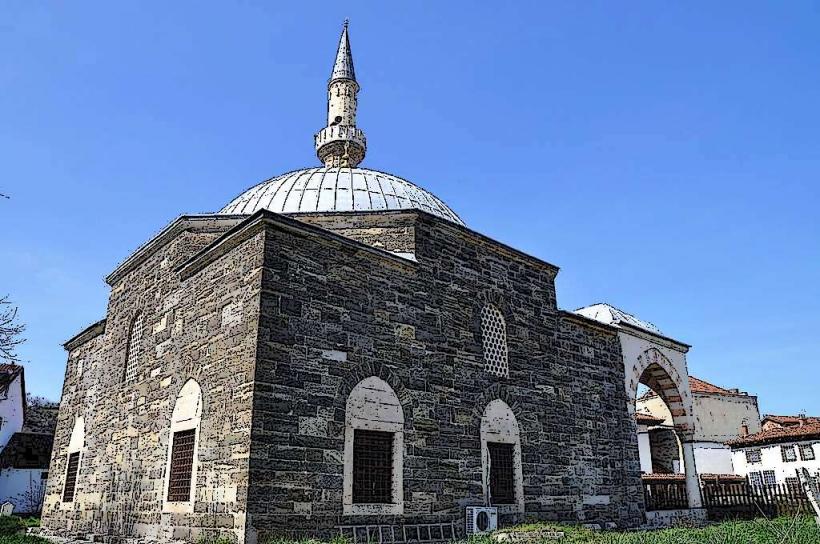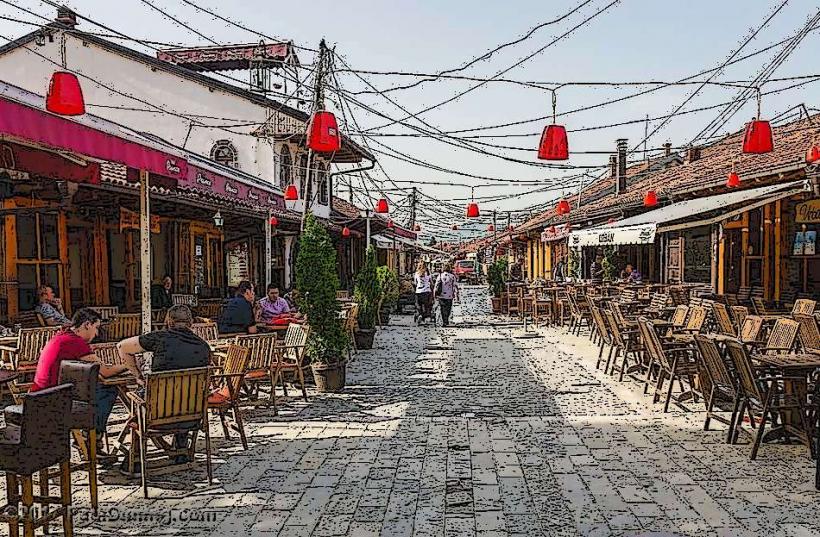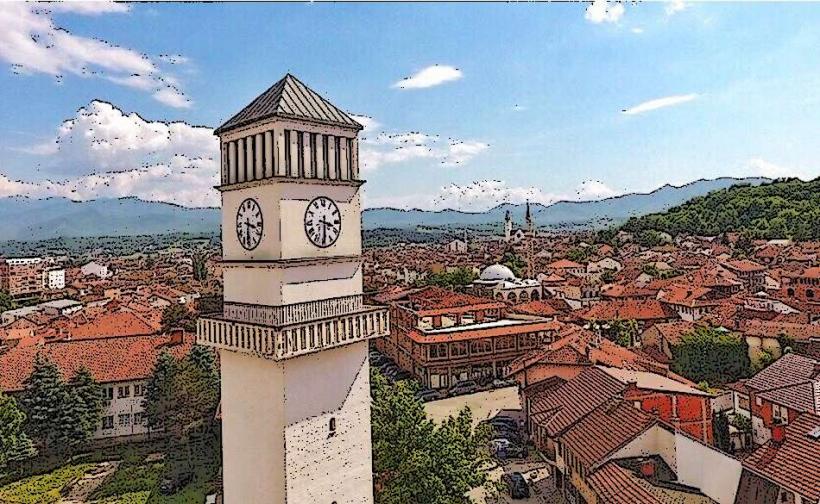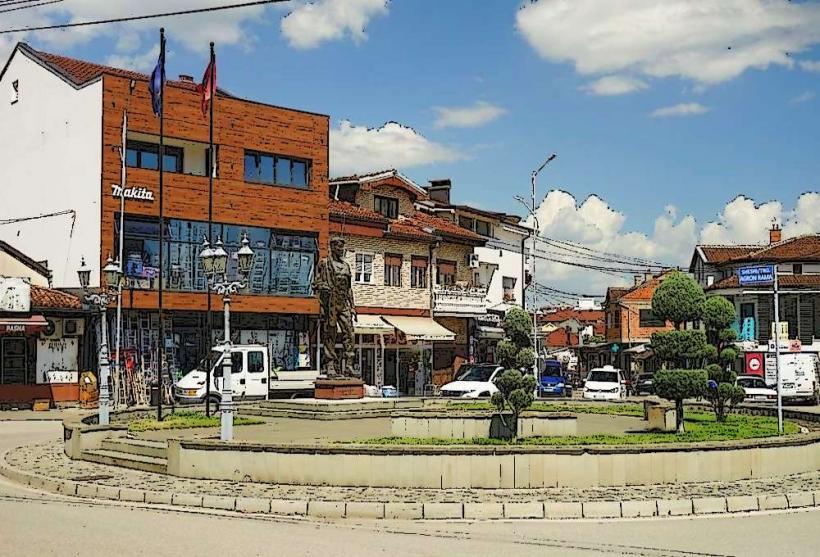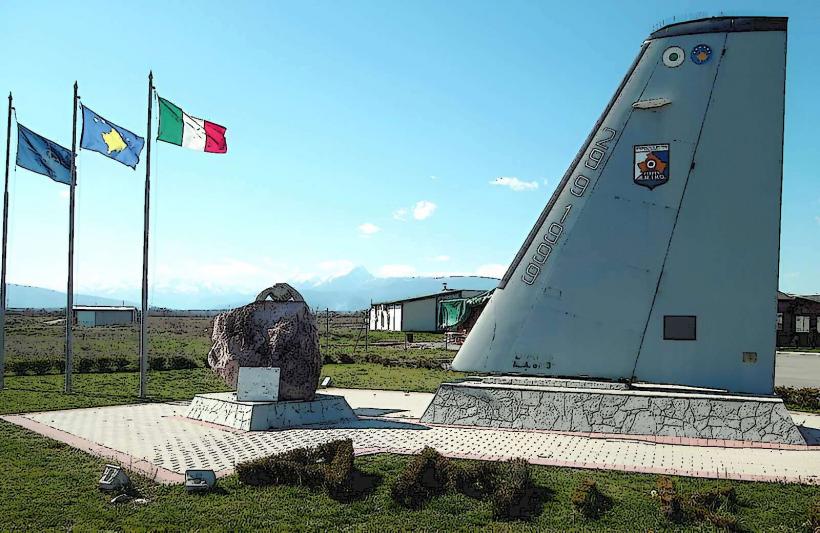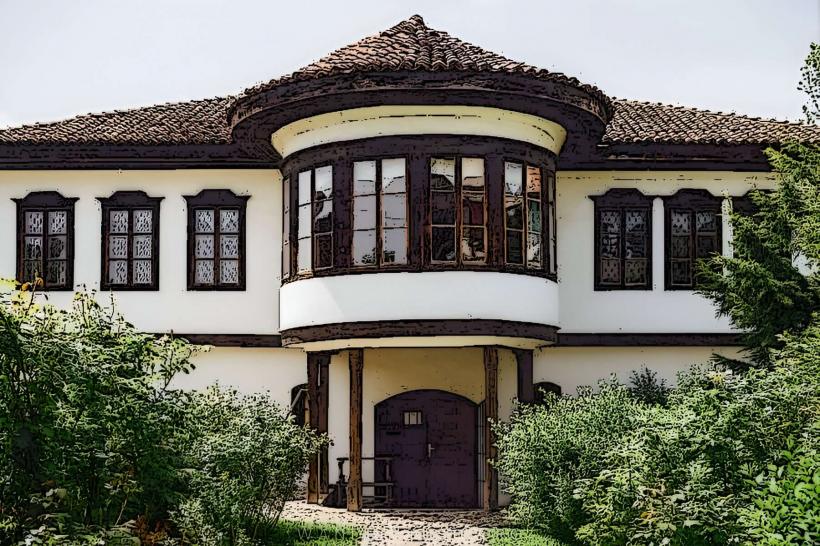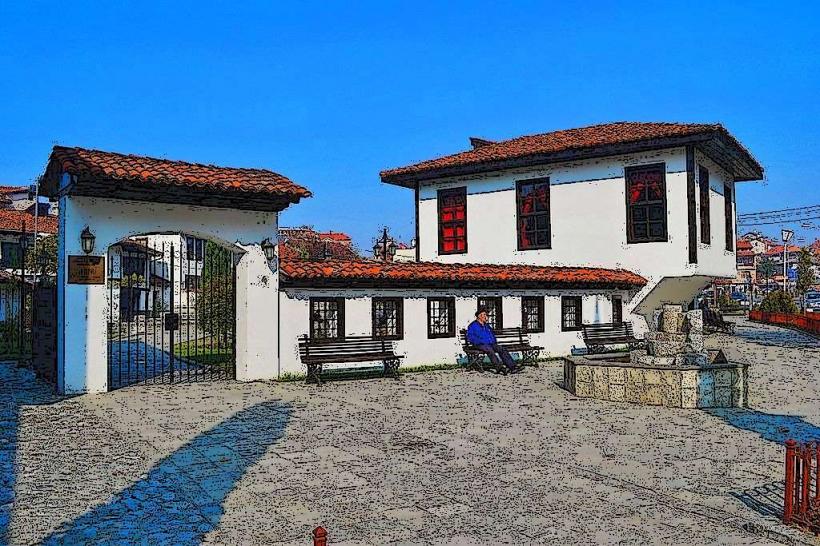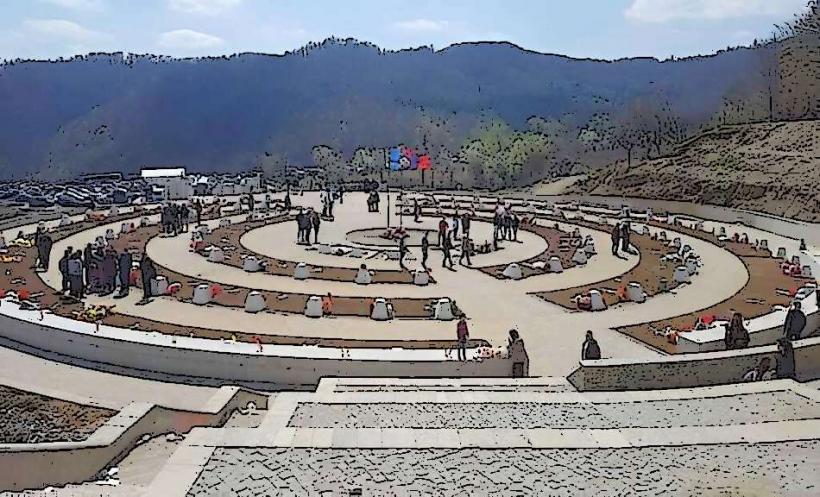Information
Landmark: Memorial of the Second Kosovo WarCity: Gjakova
Country: Kosovo
Continent: Europe
Memorial of the Second Kosovo War, Gjakova, Kosovo, Europe
The Memorial of the Second Kosovo War (Memoriali i dëshmorëve të luftës së fundit) is a commemorative complex located on Cabrat Hill (Kodra e Çabratit) overlooking the city of Gjakova. It serves as a burial ground and monument for the soldiers and civilians killed during the conflict between 1998 and 1999.
Visual Characteristics
The memorial features rows of uniform white marble headstones arranged in a tiered, semicircular formation following the natural slope of the hill. A central monument consists of high vertical stone pillars and a commemorative flame. The site is characterized by open, wind-exposed terrain with low grass and paved granite walkways, offering an unobstructed 360-degree view of the Gjakova urban area and the distant Accursed Mountains.
Location & Access Logistics
The site is situated on the summit of Cabrat Hill, approximately 2 kilometers west of the Gjakova city center. From Peja, follow the R107 highway to Gjakova and take the local uphill road toward the "Cabrat" district. The access road is paved but narrow and steep. A dedicated parking lot is located at the entrance of the memorial complex. There is no direct public bus service; access is typically via private vehicle or taxi.
Historical & Ecological Origin
The memorial was established in the early 2000s on the site of significant military engagements during the 1999 conflict. Geologically, Cabrat Hill is an elevated ridge composed of flysch and limestone that overlooks the Krena River valley. The complex was designed to centralize the remains of local resistance fighters and victims of the 1999 offensive in the city.
Key Highlights & Activities
Visitors primarily engage in commemorative walking and viewing the city from the observation points. The site features a wall of names listing the casualties from the Gjakova municipality. On national holidays, such as Independence Day (February 17) or Martyrs' Day, official ceremonies and flower-laying rituals take place.
Infrastructure & Amenities
Infrastructure at the memorial includes public benches and lighting for night visits. There are no public restrooms on-site; the nearest facilities are located at restaurants further down Cabrat Hill. Shade is non-existent due to the open nature of the memorial plaza. 5G cell phone signal is excellent due to the high elevation and proximity to city towers.
Best Time to Visit
The best time for photography is at sunset, as the memorial faces west toward the mountains and provides a backlit silhouette of the monuments against the city lights. Summer months are preferable for accessibility, as the steep road can be hazardous during winter ice or snow. Early morning provides the clearest views of the surrounding mountain ranges.
Facts & Legends
Cabrat Hill is strategically significant and has been used as a defensive position in various conflicts throughout history. A unique "secret" for visitors is a small trail leading from the back of the memorial toward the "Guri i Gjatë" (Long Stone), an ancient natural landmark used by local hikers. The memorial is considered the most sacred site in Gjakova for post-war remembrance.
Nearby Landmarks
Cabrat Hill Viewpoint – 0.1km South
Gjakova Grand Bazaar – 2.0km East
Hadum Mosque – 2.2km East
Krena River – 1.8km East
Saint Paul and Saint Peter Church – 2.5km Southeast

